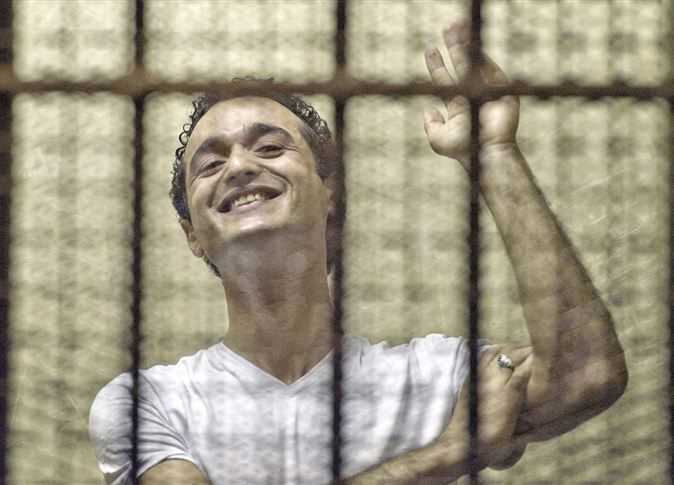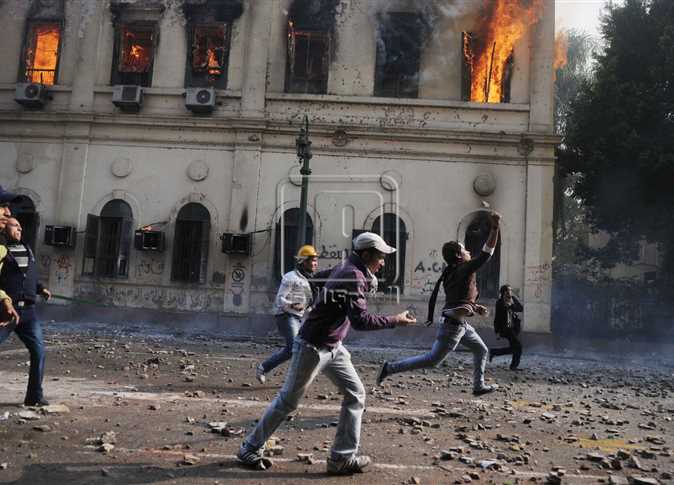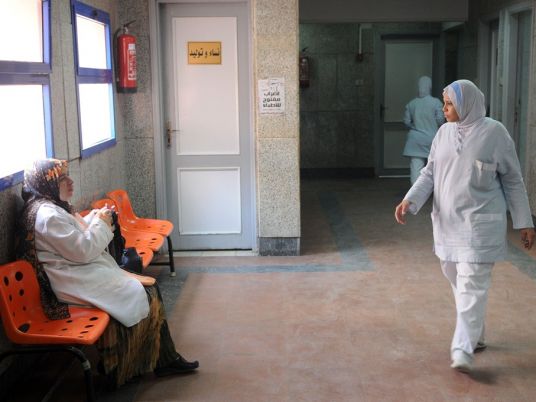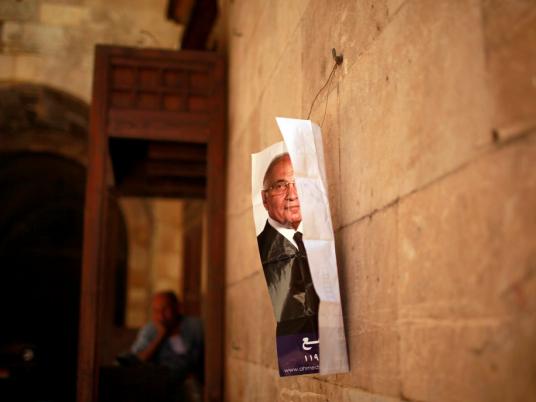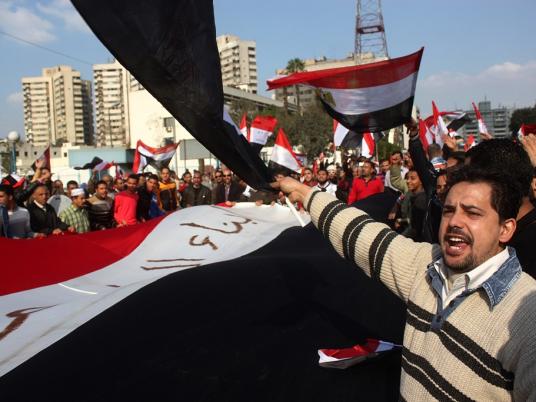
Over 5000 people gathered in Abbasseya Square Friday to support the ruling Supreme Council of the Armed Forces (SCAF) in a demonstration dubbed “No to Sabotage.”
The demonstration was organized by Silent Majority, an umbrella movement comprising seven pro-regime groups, and protested against an anti-SCAF demonstration being held simultaneously in Tahrir Square.
A number Egyptian and foreign news agencies have complained of their correspondents being assaulted while covering the protests.
Privately owned OnTV channel said one of its reporters was beaten and insulted while interviewing a Silent Majority member. Coverage cut off immediately after the attack. And the BBC's news ticker reported that one of its reporters was assaulted by demonstrators.
Privately owned Al-Tahrir newspaper reported on its website that the Abbasseya protesters assaulted female reporter Rabab Fares. The report added that police protected Fares inside a local shop to prevent protesters from reaching her.
The report also read that protesters stormed a building where the Al Jazeera channel had set up its cameras.
"God keep atheists and secularists away from us and protect our army and women," said Hesham Hassanein, a superviser at the Education Ministry and the imam who delivered the Friday sermon at the demonstration.
After prayers, protesters chanted, "Field Marshal, Field Marshal, never leave it [Egypt] for Tahrir" and "Field Marshal, we are fed up with Tahrir."
Participants set up a stage and microphones, and played patriotic songs to motivate the crowd. They flocked to the protests in what appeared to be a well-organized fashion, all carrying flags of the same size and not chanting any political slogans.
According to Emad Mohsen, a member of Silent Majority's executive office, “a small number of citizens" are trying to control the fate of all the Egyptian people. He stressed that they need to respect the will of the people through the ballot box and ongoing electoral process.
Mohsen emphasized in an interview with OnTV that his group rejects anything that can expose Egypt to harm or risk, including sabotaging public institutions and attacking the armed forces and police. He denounced the clashes that took place over the last week, which he said interrupted normal life and harmed the national economy.
"The demonstrators were also upset about attempts to bring down the state and damage its security, to achieve the objectives of foreign agendas seeking to destroy Egypt and diminish its role," Mohsen said. He stressed that the protesters are against plots from hostile countries and carried out by unfaithful Egyptians.
The movement on Wednesday criticized the media in general and a number of journalists who it considers “provocative tools used by hostile foreign and domestic elements."
In a Wednesday statement, the SCAF warned of a “plot seeking to ignite a civil war” in Egypt by dragging the army into clashes with protesters.
Observers, such as Emad Gad, an expert at Al-Ahram Center for Political and Strategic Studies and Azza Karim, a professor of sociology at the National Center for Social and Criminal Studies, said such statements are designed to panic citizens and fuel anger at Tahrir demonstrators.

